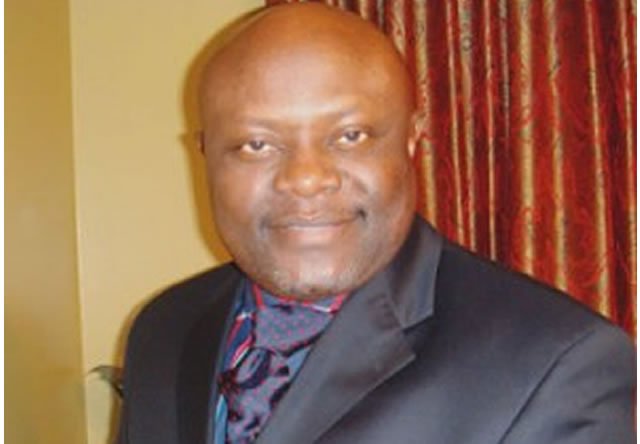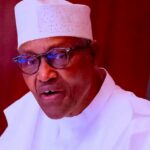
The award-winning Nigerian musician, Femi Kuti, was on TV the other day and he spoke on national issues. He did the same in the past but I heard him more clearly this time. I did because he addressed certain issues in a way that made me see the depth of his mind; the richness of his thinking process. I take note when a man’s mind has depth, the reason my most enjoyable moments are when I sit to listen to elders; wise elders who observe the reality around them and, in a balanced way, let it inform their views. Such wise old men broaden my horizon. Femi is a young wise old man. I shall return to him.
Regularly I hear views in our public space that make me want to run for cover. One is like, with all the things happening around us this is still how some people’s minds work. It’s shocking that many of these views come from people with some level of education. These people wouldn’t sum up what happens around us in a balanced manner and arrive at a point of view that shows some level of awareness. They also allow hate-filled people, people whose tribes are saints, people with one-answer-fits-all arguments, to form their opinion for them.
They’re influenced by the views of people, who go around insulting and blaming other tribes and religions for all of Nigeria’s problems. People who look for sympathisers to co-opt into their circle of those who demonise other tribes, people who take a religion as exclusively theirs so that they can continue to claim ‘persecution’ and ‘extinction.’ It’s something wise people among wise tribes don’t do. We know wise tribes by the manner they handle human affairs with tact; they carry everyone along rather than unwisely toy with tribal and religious exclusivity. This is one way wise tribes thrive, the way they enlarge their tentacles and accumulate goodwill for themselves. This makes them continue to expand and become entrenched. But not so for tribes with very myopic views and a false sense of their own superiority.
They must remain separate, small, exclusive, hateful of others. It’s a disposition that actually guarantees extinction faster than any other factor external to them, as students of Human Geography know. The Yoruba must never go that way; we didn’t go that way in the past at the time Oyo Empire was at its zenith. The Yoruba mustn’t now; some of us would continue to emphasise this for reasons I had explained in the past (“Ndigbo’s public request, Buhari’s public response (1),” May 20, 2022). As for tribes, who demonise others, despite the fact that members of their own tribes are mismanaging and looting wherever they’re placed in government, they hold the same view their elders held in the 19th century. In the 21st century, they still believe the other tribe and the other religion cause all of the problems in Nigeria. It’s pathetic.
Back to Femi and the interview he granted. I’m not an entertainment news kind of person. So whenever Femi talked I paid attention to his views on national issues—governance; human rights. As early as 12 years of age, I watched TV interviews that his father granted as well. I didn’t have a full understanding of some of the things he said on national issues. But sitting and watching the interview of an enigma such as Fela Anikulapo Kuti says something about the child in question. Some children have always been serious-minded. Femi belongs in that category too. He has to be; he’s been with elders. Years ago, he spoke about the positive influence elders in his family had on him. He talked about how a matriarch made him sit up and face his music with more seriousness. The same seriousness came forth from the depth that was Femi’s mind when he spoke in his latest TV interview.
When Femi was speaking he came to a point where his balanced, wise, and thoughtful views on national political issues made even his interviewer uncomfortable. It did to the extent that the interview began to pass judgment, saying, “You are diplomatic,” etc. He meant Femi was responding to his questions in a manner he didn’t expect him to. He wanted a wholesale condemnation of a tribe, a president, a political party—the usual stuff that’s all over the place. The interviewer wouldn’t get that though, not from a man who observes carefully what happens around him and takes full note. From them, Femi has come to the conclusion that no single tribe, president or political party should be blamed for problems that sometimes have their roots in eras before many watching the interview were born.
Femi said he wouldn’t get involved in a blame game that he knew was “a waste of time.” And that’s what many in the public space are doing. But do a little background check on them. You would notice these are people who believe the political party they belong to is the best thing to happen to Nigeria. Their tribe is the best thing to happen to mankind. They, themselves, are a perfect specie of what a human being should be. They’ve never harmed Nigeria in any way and in any setting, something we know is an absolute fallacy.
Some labour unions threaten to ensure the 2023 election does not hold, what does Femi think? He thinks the 2023 election should hold because that’s the way forward. We say the current situation is not what we want. So, let’s select another leadership and ask for improvement, Femi says. Among the candidates for the presidency, he believes there’s one who can do things differently. So he doesn’t feel any Nigerian should stop the process that will lead to the election of that one candidate. This was Femi’s thoughtful submission, something his interviewer didn’t like. He obviously wanted fiery, earth-shaking, disruptive responses from Femi. Those who would give such responses are many. But the thoughtful watcher would easily see the lack of depth of their mind. These Nigerians always have all the answers to a complex problem, and to them, only one president, one political party, one tribe causes all of Nigeria’s problems.
I was to notice that Femi’s thoughtful responses in the interview had their roots in some of his personal experiences. Now, when people’s experiences are limited it’s easy to see it in what they say. It takes a person who never lived among other tribes and enjoyed their hospitality to demonise other tribes. It takes someone who never enjoyed the kindness of people across religions to demonise all people who belong to the other religion. It takes a person who doesn’t think through the things people around them do that are not virtuous to point to Abuja and label it the source of all of Nigeria’s problems.
It’s in the news every day: How Nigerians harm Nigeria. There’s massive looting of public funds. Even people who have no reasons to claim poverty and lack of employment loot in a manner that one can best describe as disgusting. One can be sure that the Nigerian who stridently criticises the government and the party in power collects bribes and they give bribes to compromise officials in charge of school admission, award of contracts, law enforcement or importation of goods. But, no, they don’t harm Nigeria. It’s the man in Abuja and his tribe that harm Nigeria. Femi didn’t hold such an unbalanced view, one reason he didn’t share blames in the course of his interview.
Rather he explains that even around the Fela Anikulapo Kuti family, they see people who want to destroy their work. At their Shrine, they see barmen, plumbers, government officials who exhibit worse traits than the leader in Abuja that everyone likes to blame. Everyone wants to take what doesn’t belong to them and bring the Shrine down. They prey on your business to enrich themselves, something equally manifest among many in public offices. Yet, it’s the man at the top, the other tribe, the other religion that causes problems in Nigeria. I understand Femi. Now, it’s not all the time people with depth and a balanced view get to express their views in our public space. Femi did, so I took note.





